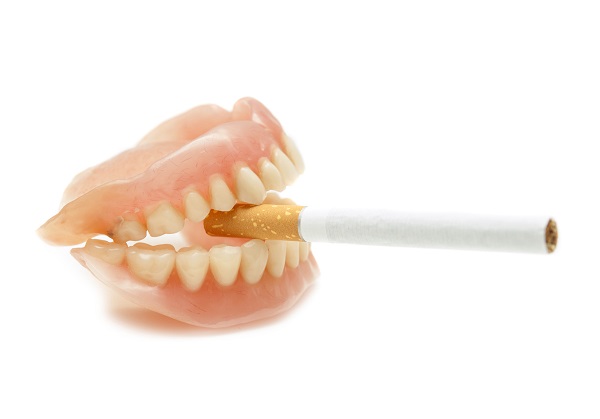
Smoking and Your Mouth’s Microbiome
It’s no surprise that smoking is bad for you. People know that it’s the leading cause of preventable diseases in the US, and its link to many types of cancer is undeniable. In fact, 75% of oral cancers are are linked to cigarette smoking. As April is Oral Cancer Awareness Month, we’d like to shed some light on new revelations in the scientific community regarding the bacteria in your mouth, its relationship to smoking, and the affect they both may have on oral cancers.
The Research
There have been countless studies that focus on how an imbalanced gut microbiome can be linked to chronic immune disorders and gastrointestinal cancers; however, very little research has explored the microbiome of the mouth and its relationship to oral cancers. Until now. Researchers from New York University Langone Medical Center and the Laura and Issac Perlmutter Cancer Center had been wondering about the impact of smoking on oral microbiota. Their paper, published in the ISME Journal (International Society for Microbial Ecology), found that smoking changes the mouth’s microbiome, leaving smokers susceptible to tooth decay and oral cancer. The team studied mouthwash samples from 1,204 adults over 50 who were registered in a nationwide cancer study for the NIH and ACS. The group included 112 smokers, 521 non-smokers, and 571 people who had quit smoking within the last ten years.
Researchers found that smoker’s mouths had significantly different oral microbiomes than those of non-smokers and even former smokers. With more than 600 different types of bacteria in the human mouth, they found that a specific bacteria tasked with breaking down toxic chemicals, called proteobacteria, made up only 4.6% of the bacteria in smoker’s mouths, where it made up 11.7% of the biome in non-smoker’s mouths. They also found that smokers had 10% more strains of Streptococcus inhabiting their mouths as compared to non-smokers. This is particularly alarming for dentists because Streptococcus is one of the leading bacteria that promotes tooth decay.
Further research is needed to determine how the changes in oral microbiota may affect the risk of oral cancer in smokers. Their further research will hone in on proving if the changes in bacteria either weakens the body’s defenses against the known carcinogens, or if it can trigger other diseases in the mouth, lungs, or gut. The authors of the study are also planning on learning a precise timeline of how long it takes a former smoker’s mouth to return to normal after kicking the habit, and to see how changes in the oral microbiome may affect other areas of the body, much like the various links periodontal disease has to chronic conditions like cardiovascular disease and Alzheimer’s.
Smoking and Oral Cancer
Finding that smoking alters the bacteria in your mouth reveals another concrete reason why smoking is one of the most horrible things you can do for your heath, oral or otherwise. Along with exposing your mouth to thousands of toxic chemicals every time you smoke, you’re weakening your immune system. Weak immune systems have a difficult time fighting the pathogens and bacteria that cause gum disease. We know gum disease can cause tooth, bone, and tissue loss in the mouth. Even with daily brushing and flossing, the constant barrage of carcinogenic compounds makes preventing gum disease nearly impossible for smokers who have a diminished supply of bacteria that could break these chemicals down. Smokers, according to the CDC, have twice the risk for gum disease than a non-smoker, and that every year you smoke you also increase your chance for gum disease.
Oral cancer caused by smoking is also nothing to scoff at. Nearly 50,000 Americans will be diagnosed with oral cancer this year and it causes almost ten thousand deaths in the United States alone. A leading cause of oral cancer is the use of tobacco and alcohol. During this Oral Cancer Awareness Month take the time to schedule an appointment with your Melbourne dentist at Artistic Touch Dentistry. Dr. Brazdo will be able to screen you for oral cancer and remind you of the risks associated with smoking including those that involve yellowing of the teeth and losing them. If you have any questions about how to keep a healthy balance of bacteria in your mouth, ask her for suggestions on maintaining a beneficial oral health routine.

